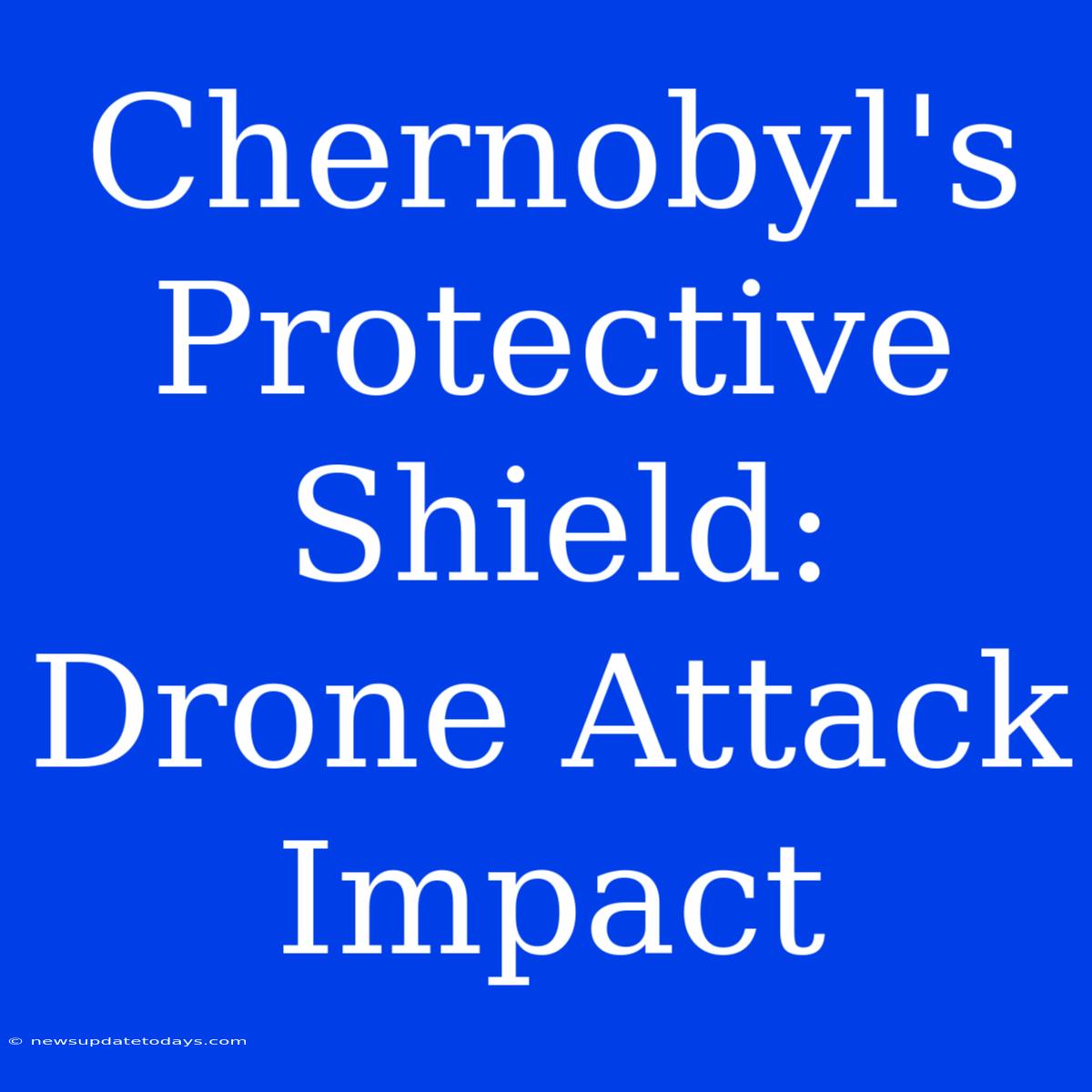Chernobyl's Protective Shield: Assessing the Impact of Drone Attacks
The Chernobyl Exclusion Zone, a site synonymous with nuclear disaster, has recently faced a new threat: drone attacks. While the immediate impact may seem limited, the long-term consequences of disrupting the fragile ecosystem and the integrity of the sarcophagus covering the damaged reactor require careful consideration. This article delves into the potential effects of these attacks, exploring the environmental, security, and political ramifications.
Environmental Concerns: A Delicate Ecosystem Under Threat
The Chernobyl Exclusion Zone, despite its radioactive legacy, has become a unique haven for wildlife. The absence of human activity has allowed nature to reclaim the land, creating a biodiversity hotspot. Drone attacks, however, introduce new disturbances. The noise and potential for physical damage could disrupt animal behavior and breeding patterns. Moreover, any damage to the contaminated soil could lead to the further spread of radioactive particles, impacting both the local environment and potentially beyond the zone’s borders.
Key Concerns:
- Wildlife Disruption: Noise pollution and physical damage impacting animal populations and habitats.
- Soil Disturbance: Increased spread of radioactive contaminants.
- Air Quality: Potential release of airborne radioactive particles.
Security Implications: A Vulnerable Site
The Chernobyl Exclusion Zone is already under tight security, but drone attacks highlight vulnerabilities in the existing systems. The relative ease with which drones can penetrate the zone raises concerns about the potential for more serious security breaches in the future. This includes the possibility of sabotage, theft of radioactive materials, or even terrorist activities. The incident underscores the need for enhanced security measures, including advanced drone detection and counter-drone technologies.
Key Security Risks:
- Sabotage: Deliberate damage to critical infrastructure.
- Theft: Potential theft of radioactive materials.
- Terrorism: The zone's vulnerability to terrorist attacks.
Geopolitical Ramifications: A Complex International Issue
The Chernobyl Exclusion Zone is not just a Ukrainian issue; it's a matter of international concern. The ongoing conflict in Ukraine casts a long shadow over the zone's security and management. Drone attacks highlight the instability of the region and the potential for further escalation. The international community plays a vital role in ensuring the continued safety and security of the site, and these attacks underscore the importance of continued cooperation and monitoring.
Key Geopolitical Aspects:
- International Cooperation: The need for international collaboration in safeguarding the site.
- Conflict Impact: The influence of the ongoing conflict on the zone's security.
- Long-term Monitoring: The critical need for ongoing monitoring and assessment.
Conclusion: A Call for Vigilance and Enhanced Security
Drone attacks on Chernobyl's protective shield represent a serious threat, impacting not only the fragile ecosystem but also the security and geopolitical stability of the region. A comprehensive response is needed, involving enhanced security measures, international cooperation, and ongoing monitoring of the environment. The future safety of the Chernobyl Exclusion Zone, a site with profound historical and environmental significance, hinges on proactive measures to prevent future incidents. The world must remain vigilant and prioritize the long-term security of this critical location.

